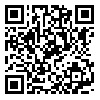BibTeX | RIS | EndNote | Medlars | ProCite | Reference Manager | RefWorks
Send citation to:
URL: http://ijeee.iust.ac.ir/article-1-962-en.html
Automatic recognition of speech emotional states in noisy conditions has become an important research topic in the emotional speech recognition area, in recent years. This paper considers the recognition of emotional states via speech in real environments. For this task, we employ the power normalized cepstral coefficients (PNCC) in a speech emotion recognition system. We investigate its performance in emotion recognition using clean and noisy speech materials and compare it with the performances of the well-known MFCC, LPCC, RASTA-PLP, and also TEMFCC features. Speech samples are extracted from the Berlin emotional speech database (Emo DB) and Persian emotional speech database (Persian ESD) which are corrupted with 4 different noise types under various SNR levels. The experiments are conducted in clean train/noisy test scenarios to simulate practical conditions with noise sources. Simulation results show that higher recognition rates are achieved for PNCC as compared with the conventional features under noisy conditions.
Received: 2016/06/21 | Revised: 2017/08/23 | Accepted: 2016/10/15
| Rights and permissions | |
 |
This work is licensed under a Creative Commons Attribution-NonCommercial 4.0 International License. |








